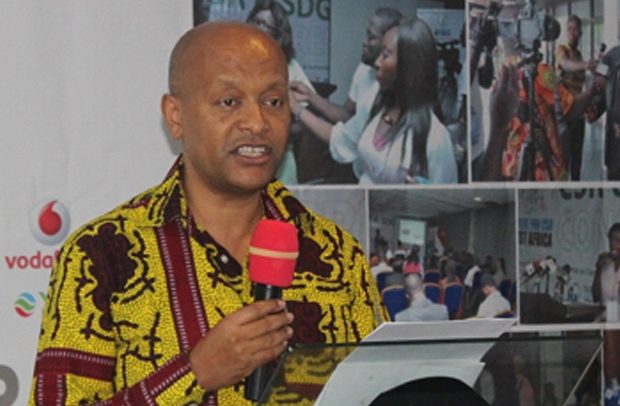Mr. Tesfa Mariam
GOVERNMENT HAS been urged to widen tax incentives for private businesses in order for them to get fully committed in Corporate Social Responsibility (CSR) activities.
According to players in the private sector, it would be a win-win situation for both government and the private sector if tax incentives were awarded to companies as a result of participating in CSR activities.
The Greater Accra Regional Chairperson for the Association of Ghana Industries, Tsornam Akpello, who made the call recently, said “my proposal is that there should be a legislature that allows the private sector to commit part of its tax money into the CSR. That way, there will be proper motivation for them to pursue activities in favour of the CSR”.
He added that calling for government to create tax incentives was not a new thing because it was done in some parts of the world. He said it should rather be formalized to enable the private sector to be obligated in giving back to the society.
He was speaking at the seventh National Corporate Social Responsibility (CSR) Conference in Accra themed: “Harnessing Local Partnership for CSR and Sustainability”.
Country Director of Plan International, Solomon Tesfa Mariam, said, “We support the realization of children’s right from birth until adulthood because we believe in the power and potential of every child, but know this is often suppressed by poverty, violence, exclusion and discrimination”.
Mr Tesfa Miriam noted that Plan International Ghana had been building powerful partnerships for the past 80 in more than 75 countries including Ghana, using its ‘reach’ experience and knowledge to drive change at the local, national and global levels.
“Economic Security, Water, Hygiene and Education are four thematic areas that Plan International operates” through child-centered, family and community-oriented development interventions, Plan International Ghana has sponsored close to 30,000 children and indirectly reaching 2 million children,” he stated.
He added that Plan International Ghana was working on several projects.
Reaching and Teaching out of School Children (REACH) in partnership with the Ministry of Education and Ghana Education Service, amongst others, would address the issue of out-of-school children in the country.
The project aims to enroll 90,000 girls and boys who were dropouts from five regions through the Complimentary Basic Education and transition 70 per cent of the graduates to formal primary schools.
By Jamila Akweley Okertchiri and Nimako Nadia


